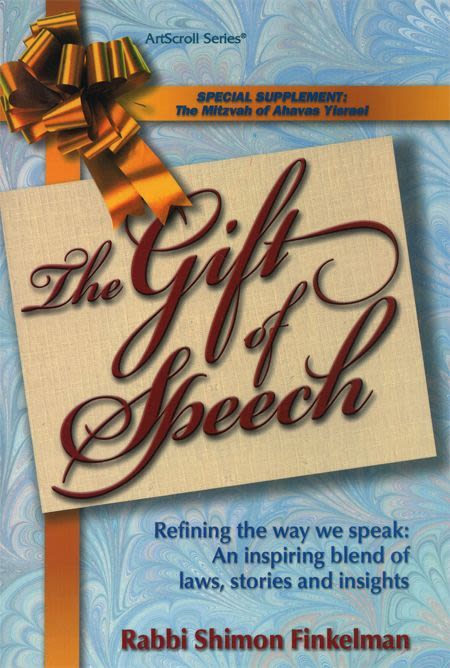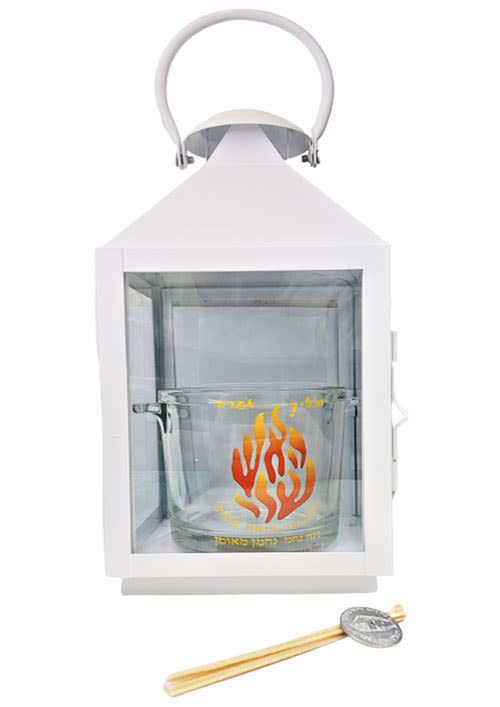
Behar-Bechukotai: Above Nature’s Limitations
Above Nature's Limitations - A Jewish farmer in the Holy Land is commanded to give the land a rest during the sabbatical year...

Parshat Behar
Above Nature’s Limitations
“And I shall command My blessing for you in the sixth year and it will yield a crop sufficient for the three-year period” (Vayikra 25:21).
A Jewish farmer in the Holy Land is commanded to give the land a rest during the sabbatical year. In turn, Hashem promises a triple yield for the sixth-year crop – enough grain for the latter part of the sixth year, for the sabbatical year when planting and working the soil is forbidden, for the eighth year while the new grain is growing, and for the first part of the ninth year until the Omer-offering on the 16th of Nissan when the new grain is permitted.
Why does Hashem use such stern language when He promises, “I shall command My blessing”? Wouldn’t it appear more logical for Hashem to say something more delicate, such as “I shall bestow my blessing”?
The explanation to the above questions is surprisingly simple: Nature and the natural functioning of the creations are instilled within every creation. Yet, nature is nothing but a tool in Hashem’s hands and the normal mode that Hashem uses to run the world. Hashem can override nature wherever and whenever He desires by issuing a special command. As a general rule, the land gives a normal yield, plus-minus thirty percent. But a guaranteed triple yield at the exact time of the post-sabbatical year requires that Hashem issue a special command. Therefore, the Hashem says that He’ll command his blessing; in other words, Hashem performs a special miracle for those faithful farmers who fear His Holy Name.
Rebbe Nachman of Breslev teaches that both prayer and trust in Hashem elevate a person above the limitations of nature, especially in the Land of Israel. Prayer, explains Rebbe Nachman (see Likutei Moharan I:7), is the expression of emuna, or complete faith that Hashem renews the world each day as He wishes. Therefore, by prayer, one can affect miracles above the level of nature. Israel is the land of emuna and prayer, and conducive to miracles. Elsewhere (ibid, 66), Rebbe Nachman remarks that by trusting Hashem, in other words, by looking to Hashem for all our needs, we receive abundance and sustenance at exactly the right time, a concept that also defies nature. Practically, this means that even though pay day is a week away, through prayer and trust in Hashem, a person can receive whatever he or she needs right now!
Let’s look at an eye-opening detail in this week’s Torah portion: Hashem says, “I shall command my blessing” (Vayikra 25:21) only after the Torah chastises the skeptical farmer that lacks trust in Hashem and asks, “What will we eat in the seventh year?” (ibid, 20). If the farmer would have listened to Rebbe Nachman’s advice and would have prayed to Hashem and trusted in Hashem, then Hashem wouldn’t have had to override nature and command the blessing of a triple yield. The farmer’s prayers and trust in Hashem alone would have been sufficient to invoke the miracle of a triple yield! All he has to do is ask his beloved Father in Heaven, and to place his trust in Him!
With Hashem’s guidance, the following parable will make the concepts of prayer and trust easy to understand:
A great King reigned over one hundred twenty-seven countries. His wealth was unfathomable. If all the trees in the forests were pens and all the water in the rivers were ink, they would be unable to list all the King’s riches. Yet the King had a full measure of sorrow in life; his beloved only son had disappeared from the palace, and no one knew where he had disappeared to.
One day, the King sent one of his ministers on a special mission to a faraway land. After a meeting with the local dignitaries, the minister took a stroll through one of the foreign city’s picturesque parks. He saw a familiar-looking figure lying on a bench. “Where on earth have I seen that beggar before?” the minister asked himself. He stepped closer for a better look and a young man in tattered clothes, torn shoes, and matted blond hair that hadn’t seen a bar of soap in weeks looked up at him sheepishly. “Y-you’re the prince!” exclaimed the minister. “You can’t fool me – I recognize you, grit, grime, and all! What are you doing here?”
Embarrassed, the prince answered, “I came here in search of a livelihood – a means of sustenance. I haven’t had much success. As a matter of fact, I’m flat broke!”
“Are you daft?” thundered the minister. “Your father the King is the richest man on earth! He’s been looking for you everywhere – he misses you so much. He can give you anything and everything you need, with a single command…”
The skeptic, pea-brained prince interjected, “…but how do I know that my father will give me whatever I need? He’s the King and he runs the entire kingdom; how do I know he cares about me?”
“Dimwit!” yelled the minister, “you’re his only son! He loves you more than anyone else! Have you ever asked him for what you need?”
“No,” answered the prince, “I never had the time…”
As ludicrous as the above parable may seem, it describes many of us perfectly. Rather than asking our beloved Father in Heaven for all of our needs, we exert needless energy running all over the place trying to scrape together a living.
Hashem is more than happy to provide whatever we need exactly when we need it. But, Hashem wants us to learn – for the ultimate good of our souls – prayer, faith, and trust. The triple-pronged spiritual power of prayer, faith, and trust is capable of invoking tremendous abundance, to the extent that Hashem sends the trusting person’s sustenance right to his or her doorstep, enabling him or her to concentrate on Torah learning and doing mitzvot. Throughout history until this very day, farmers in the Land of Israel can take advantage of the sabbatical year to sit in the House of Study. This demonstrates that Hashem overrides the laws and limitations of nature to feed and sustain his beloved children. By virtue of prayer and trust, may we all merit an abundance of spiritual and material blessings always, amen.
* * *
Parshat Bechukotai
Money Worries
“You will eat your bread to satiety…and no one will frighten you” (Vayikra 26:5-6).
The Torah’s beautiful blessings are eternal. They are just as real today as they ever were.
Hashem grants us His solemn promise that if we observe His commandments and walk in the ways of the Torah, our lives here in Eretz Yisroel will be characterized by abundance and tranquility.
Apparently today’s reality contradicts the Torah. The residents of Israel don’t have an abundance of money and they’re surrounded by millions of enemies. On the other hand, the Jews of the Diaspora are generally affluent and live without any significant threats. So how do we understand the Torah’s blessing?
Rebbe Nachman of Breslev explains (Likutei Moharan I:23) that the greater a person’s lust for money, the more he or she fears losing money. Conversely, those who trust Hashem don’t crave money, because they understand that Hashem will fulfill their needs. Where there’s no lust for money, there’s no fear of losing money. Reb Natan elaborates further (Likutei Halachos, Birkas Hamazon:D) that the Land of Israel has a double abundance: First, it is the land of plenty, with no deficiency; second, it’s conducive to overcoming the lust for money. Again, where there’s no lust for money, there’s no worry!
In light of Rebbe Nachman’s and Rebbe Nosson’s teachings, we see how the Torah’s blessings are eternally true –since the majority of people living in Israel are not financially wealthy, they have less to lose and therefore much less to worry about. Yet bread in Israel is plentiful. So the Torah’s blessing, “You will eat your bread to satiety…and no one will frighten you” is a reality! On the other hand, outside of Israel, money might be more plentiful, but so is the lust for money. “Time is money” say the people who chase after their money from dawn to dusk.
The more money one has, the more money one craves, and the greater one’s craving for money, the more one fears losing it. Those who crave money are never satisfied; they want to eat like noblemen, so simple bread won’t satiate them. With all their money, they’re sick with worry and insatiate.
Ponder the following parable, and with Hashem’s help, you’ll understand the Torah’s double blessing of abundance and security (the opposite of fear and worry) in the Land of Israel:
A young man in the Galilee owned a small plot of land on a tranquil hillside, with a few fruit trees and a stream running through his property. He was immensely happy with a minimum of worldly possessions; available water, his daily sustenance, and a roomy tent was more than enought for him. With no need for money, he was free to spend his time playing his flute, singing praises to Hashem, and learning Torah under the shade of an apple tree.
Amazingly, whenever the young Galilean was hungry, an apple would drop from the tree within arms reach. He didn’t even have to stand up or pick the fruit off the tree, for the fruit would come to him. When the apple season was over, he’d learn his holy books under the shade of an almond tree, which would in turn provide him with nutritious almonds for the next two months. Here too, the almonds dropped in his lap whenever he was hungry – he didn’t have to pick them either! The same with the carobs…
One day, a pair or wealthy-looking tourists with fancy backpacks were hiking in the Galilean hills and stumbled upon the young Galilean’s modest homestead. To fulfill the mitzvah of honoring guests, the young man rose to his feet and picked two apples. The guests gladly ate the apples, marveling at their taste. “You could make a lot of money with these apples,” they raved. “These are the best we ever ate! Why don’t you plant more trees?”
“And then what shall I do?” asked the Galilean.
“Then you can market apples abroad and earn dollars – thousands of them!”
“And then what shall I do?” asked the Galilean.
“Then you can build an apple juice, cider, and vinegar factory. You can employ people to run the orchards and people to run the factory; you’ll have hundreds of employees…”
“And then what?” asked the Galilean.
“You can branch out, build more factories, buy land and plant orchards in Europe and America…”
“And then what?” asked the Galilean.
“You’ll be so big,” said the two tourists, “that you’ll have to go public on Wall Street; you’ll make a mint!”
“And then what?” asked the Galilean.
“You can retire, do what you like whenever you like, and live a worry-free life up in these gorgeous hills learning Torah and playing your flute.”
“Simpletons!” exclaimed the Galilean, “I’m already doing that!”
Torah and prayer are our main task in this world; money is only a vehicle. How unfortunate are those that misdirect their efforts from the main task to the vehicle.
May Hashem help us to be satisfied always with what we have, and to trust in Him only for all our needs, amen.











Tell us what you think!
Thank you for your comment!
It will be published after approval by the Editor.